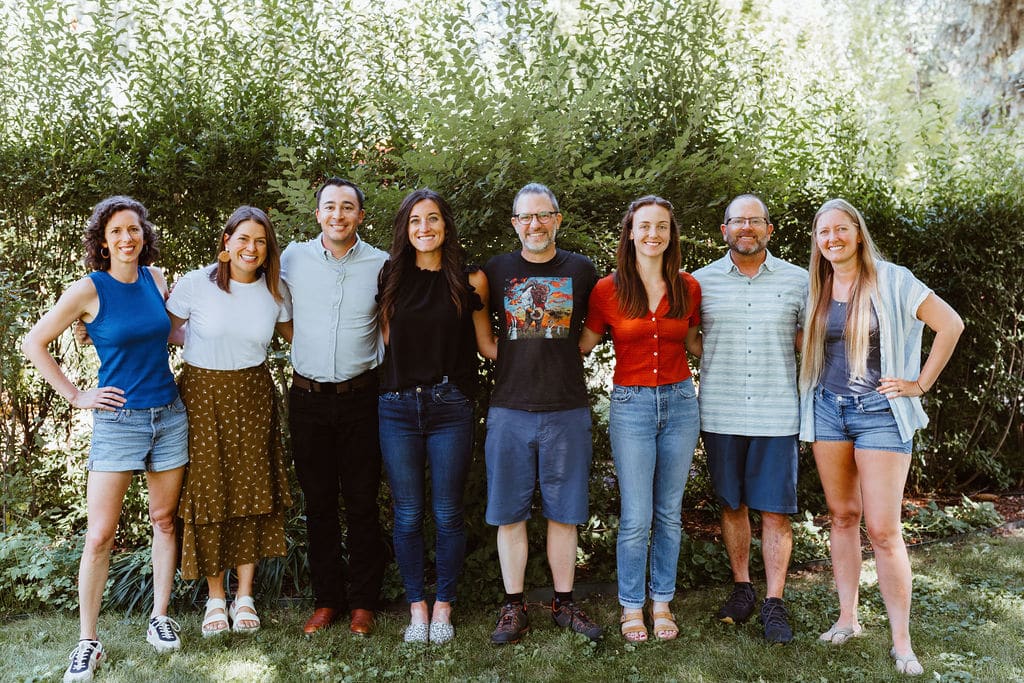By Margaret Hedderman, Mark Madic, & Brook Sutton
The center of Fremont County sits about 45 miles southwest of Colorado Springs. It’s a stunningly beautiful area, with red rock cliffs, the towering Royal Gorge, and wide open views of the Sangre de Cristo mountains to the west.
The two biggest cities–Cañon City and Florence–boast beautiful downtown districts, phenomenal access to hiking and mountain biking trails, and quiet neighborhoods. It’s the kind of place where you fall asleep to the music of owls and coyotes.
Despite the beauty and mild climate (for Colorado, at least), years of stagnant or negative economic growth led to the familiar “rural brain drain” narrative.
The industries that fueled the area are classic Colorado: mining, agriculture, ranching, and recreation. These are capital intensive and hard-to-scale industries. Because of this, Fremont County was long overlooked as a viable place to start new business.
However, about a decade ago, a shift began to take root. The area began to transform into an emerging technology hub, not by chance, but through the deliberate efforts and investments of visionary leaders who posed the question, “Why not here?”
Their early efforts to assess the region’s viability as a tech hub unearthed an “underground” network of tech and business professionals already living in the county. You might say they were hiding in plain sight. At the time, the relatively unknown towns of Fremont County didn’t add much gravitas to a C.V., so people often listed “Colorado Springs” on their LinkedIn profile to benefit from its urban prestige.
Fast forward to 2025 and many of those same professionals are proudly listing their location in Fremont County, an area that now supports a growing tech scene, numerous startups, and overall growth. What changed?
In short: a lot. That’s what we’ll explore in our first case study of 2025.
The revolution did not happen overnight. It’s the result of a cooperative ecosystem of development efforts, led by a diverse group of entrepreneurs and business support agents.
A Brief Economic History of Fremont County
Some consider Fremont County to be the “climate capital of Colorado” and others dub it the “prison capital.” These unconnected nicknames shed some light on the complex cultural and economic influences that have shaped the area.
It was originally home to the Ute Indians before American settlers began arriving in the mid- to late-1800s. Drawn by the Pike’s Peak Gold Rush of 1858, an influx of miners established the extractive industry as an economic center, and pushed the Utes largely out. Cañon City became home to a number of metal ore smelters. Even oil was discovered in 1862.
Simultaneously, the region’s fertile soil and mild climate boosted a rich agricultural scene. By the late 1800s, agricultural production had expanded to cover more than 45,000 acres of land, especially suited to apples, cherries, apricots, and peaches. It remains an agricultural center in Colorado.
A third economic driver emerged in 1861, and is today a leading source of employment in the area: the Colorado Department of Corrections. Fremont County is home to 15 different correctional facilities, including the nation’s only Supermax jail. At one point, more than half the county’s jobs were generated, in one form or another, by the corrections industry.
Planting the seeds for an emergent tech scene
Rob Brown grew up in Cañon City. Like many rural kids, he skipped town immediately after high school. Post college, he built his career in tech, working with multiple Denver startups and indulging his own entrepreneurial spirit across several businesses. As workplaces slowly became more flexible in the early 2000s, Brown decided to relocate his business and return to his hometown.
He was shocked.
“I saw the economic situation of the town that I grew up in had not kept up with the times. It wasn’t growing and flourishing, like it was in the Front Range cities,” he said.
To help turn things around, Brown took a part-time consulting position with the Fremont County Economic Development Corporation (FEDC).
Today, he is the executive director. Brown’s superpower is connecting the people and pieces necessary to create the culture and infrastructures that power economic development.
“At first, [the FEDC wasn’t] able to gain any momentum. In 2013, which was also the FEDC’s 30th anniversary year, we invited 150 local business leaders and government leaders together to glean what they thought the FEDC should be doing.”
The community was clear it wanted the FEDC to make connections between business startup support and community-based initiatives, like education, and job creation and retention.
At that meeting, Brown suggested breaking the room into economic clusters—or micro-startup ecosystems—divided by industry. This decision proved pivotal for tech to take hold in Fremont County, and for other avenues toward economic resiliency (like agriculture, arts, trade, and STEM education) to follow suit.
Brad Rowland was at the 2013 meeting. He was a remote tech worker and serial entrepreneur who had moved to the area around that time. As he began connecting with other attendees, he was surprised at the number of fellow tech professionals in the room. Most of them thought they were the only ones in the area.
They gathered around a table and sensed potential. Together, they formed what would eventually become FEDC’s TechSTART program, an initiative to develop and foster the local tech scene.
Launching TechSTART in Fremont County
TechSTART officially kicked off in 2016 with several ambitions: to attract remote workers to Fremont County, catalyze local job creation, and serve as a local business incubator.
Rowland summarized the strategy, which partially sought to counteract the region’s long history of boom/bust cycles. An economy that’s not exclusively tied to the whims or fortunes of one employer—like the old “company town” model—may build momentum more slowly at first, but tends to display more resilience over time.
“In this region it’s better to create 100, individual remote jobs [first]. Because if 10 companies shut down, that’s 10 people looking for different jobs locally.”
Identification: The team first did a comprehensive SWOT (strengths, weaknesses, opportunities, and threats) analysis of the local tech ecosystem, focusing on what would attract tech workers, remote workers, and budding entrepreneurs to Fremont County.
Affordable cost of living, high quality of life, and abundant outdoor recreational activities topped the lists of the County’s strengths. On the flip side, the regional tech network and technology-related educational opportunities in local schools needed enhancement.
Implementation: The TechSTART team worked to identify the tech professionals already established in the area. Once again, the number was larger than anticipated. Since most were working remotely, from home, TechSTART launched a series of meetups and networking events to get people interacting.
As an initiative under the FEDC, TechSTART also prioritized collective economic growth. To that end, the team believed these ambitious, remote professionals might also be nurtured into entrepreneurs and job creators. “Is anybody doing a startup?” Rowland remembered asking. “Does anybody want to do a startup? How do we figure that out?”
Coordinating personal networks and tapping into personal ambition, therefore, became channels for entrepreneurial development and tools to build momentum for the entire local economy.
Momentum: By 2018, the quarterly meetings were attracting tech professionals and curious locals alike, keen to understand the burgeoning tech scene. With TechSTART paving the way, Fremont County earned State designation in 2018 as a “South Central Tech Center.” This recognition opened doors to collaborate with other counties in order to develop public/private partnerships, strengthening the Southern Colorado tech economy. Fremont County was officially on the tech map!
To maintain momentum, TechSTART and the FEDC would need to concurrently nurture the individual founders and boost Fremont County’s potential as fertile ground for fresh business ventures and innovation. They needed to build an infrastructure.
The solution? A local coworking space that could be a hub for more community building, idea exchanges, and business development.
Emergent Campus Provides a Home for Innovation

Initially, TechSTART and the FEDC rented a space to house the coworking initiative. The idea took off! The coworking space provided an affordable launching pad for several successful businesses, many of which quickly grew out of the limited space.
“Three Rocks Engineering began as one person, and they now have 30 people,” Rowland said. “He had like nine of them in this little one room office for a while!”
The tech scene was ready to scale, but frequent rent hikes and the need for more space forced the project to relocate several times. When they weren’t able to secure grant funding to purchase a location, a dedicated group of TechSTART volunteers stepped up.
Rowland, along with Chris Koehn and other investors, privately purchased a building big enough to meet the TechSTART constituent’s growing demand for space. They bought the century-old building that once housed Florence High School and transformed it into a multi-use business campus. In 2019, Emergent Campus officially opened.
Emergent Campus soon became an award-winning for-profit venture. It hosts an eclectic mix of remote workers, small startups, and satellite offices for larger companies. It serves as an informal business incubator that stimulates local economic growth and innovation.
“If it’s hard to do a startup in the metro area, it’s 10 times harder in a rural area,” said Rowland. The Emergent Campus provides infrastructure, inspiration, and mentorship to help level the playing field.
“If it’s hard to do a startup in the metro area, it’s 10 times harder in a rural area."
Brad Rowland, TechStart Founder
True to the origins of Brown’s vision for the TechSTART initiative, Emergent Campus draws tech-focused professionals together and creates opportunities to network and collaborate. Those ideals remain guiding principles of the space and the business venture.
Rowland envisions the influence of Emergent Campus reaching far beyond the confines of Fremont County. Strategically positioned just an hour from Colorado Springs and two hours from the Denver/Boulder area, Florence offers a prime location for major corporations to establish satellite offices for their remote teams.
His vision is already coming to fruition. Several government cybersecurity contractors and the first satellite office of Pax8—a Denver-based cloud marketplace company—rent space at Emergent Campus. The infrastructure itself is a lead magnet.
“The Emergent Campus provided a modern workspace and advanced infrastructure, making it the perfect choice to expand our office footprint,” said Chloe Cameron, Vice President of Employee Experience and Strategic Programs at Pax8. “The move also provided access to the impressive talent pool in Fremont County, allowing us to bring some of our Service and Support teams here and continue growing those teams. We value our partnership with the Emergent Campus and look forward to continued success.”
Leveraging lessons learned during the pandemic and with fiscal incentive from OEDIT, Pax8 formally opened their remote office at the Emergent Campus in 2021.
The move has solidified Pax8’s commitment to expanding its remote workforce, and also has underscored Emergent Campus’s strategic value as a hub for rural tech engagement. It’s helping to bridge the urban-rural divide in Colorado’s burgeoning tech landscape, and certainly help to kickstart the momentum as an early adopter.
Rowland and the other leaders know it’s not easy for companies to commit to remote work. These high profile tenants highlight Fremont County’s existing infrastructural benefits and future promise, as well the technology sector’s growing role in the County’s economic expansion.
As Diana Armstrong, convener of the South Central Sector Partnerships, local business owner and leader of the FEDC START initiatives confirms, “We have more tech [workers] being hired now than we do in corrections.”
Thinking Long-term With the Local School District
Building economic security and resilience for an entire region requires more than ideas, infrastructure, and early adopters. There needs to be a channel to develop talent. And on the flip side of that, the community needs to be appealing enough to retain that talent.
“As an economic development organization, we think it’s key to be involved in the education piece,” said Brown. “One of my objectives at FEDC is to create a bridge between the intellectual content that’s created and the business startups in our area. That only happens [through engaging] the larger educational ecosystem. So, connecting with education is how we’re going to, in effect, create our own destiny. It’s a big deal to us.”
The FEDC and community leaders understand this requires 360-degree approach. For sustainable economic development, communities develop an attractive business environment. For business leaders starting or relocating to a rural location, they look for a talent pool. Parents considering a move want compelling, fun, and yes, marketable educational programming for their kids. And for young people growing up in rural areas, like Fremont County, they want options. If they’re interested in remaining in their hometown, they need to see a path toward economic security.
Over time, the FEDC has been helping to put all these pieces together.
About six years ago, the FEDC, TechSTART, and the local school district were integral in securing Fremont County as the first rural community to receive a Pathways in Technology Early College High School (PTECH) grant. PTECH grants, funded as a public/private partnership, pay for two years of college-level education for students pursuing STEM degrees. Graduates can choose to enter the workforce, debt-free and with the equivalent of an associate’s degree, or they can continue their schooling.

PTECH programs are now fully ingrained into the Fremont County school system. STEM-track students begin their coursework in high school and receive two years of college-level education free of cost.
According to Brown, “We have a robust apprenticeship program, where every senior in Cañon City High School has a capstone project and an apprentice internship. It’s really become kind of a cultural shift here, and we’re quite proud of that.”
Still, challenges are ever-present when trying to build resilient talent pipelines, opportunities, and work/education programming. Small schools simply do not have the resources to provide every avenue of opportunity for students.
Once again, collaboration proves to be a winning strategy in Fremont County.
With a new initiative called the Fremont Multi-County Initiative (FMI), students living anywhere in the county are welcome to participate in classes at any one of the three high schools located there. For instance, Florence High School might have a great agriculture program, while Cañon City High focuses on cybersecurity. Any high school student in the county can attend classes in their chosen interest at any school in the district. The FMI is even working to provide student transportation and to break down other barriers to success.
When combined with a PTECH track and coordinated internships, young people in Fremont County are discovering marketable options right in their own backyard.
Tech as Part of a Broader Economic Resilience Mission
When Brown started at the FEDC, he acknowledged the difficulty in establishing relevancy and in gaining any momentum toward economic development.
“So we decided to stand up our own micro-ecosystem. That first one was TechSTART. Once we demonstrated proof of concept, we could roll out several others.”
In addition to TechSTART, the FEDC has backed WellSTART (developing a strong medical and behavioral health network) and AgSTART (creating agricultural opportunities). There’s local enthusiasm for more “START” programs, ArtSTART among them.
Currently, the team and community are working on TradeSTART, which will support students on trade-oriented career tracks. Young people who gravitate toward building and other trades can gain skills and experience toward six-figure, local jobs. Bonus: The growing communities in Fremont County need local tradespeople.
“We have a number of other types of similar initiatives planned,” Brown said. He added that the organization depends heavily on a volunteer force.
The Blended Ecosystems of Tech and Ag
Sarah Hinkley, co-founder and CEO of Barn Owl Precision Agriculture (BOPA), was one of the leaders invited into the FEDC mission. Now she’s leading the FEDC AgSTART program.
AgSTART is modeled on the business-building ethos of TechSTART, yet with a focus on agriculture. It’s focused on fostering profitability and positive impacts through traditional agriculture, Ag-tech, conservation initiatives, and the interplay of all three.
The AgStart initiative focuses on creating support systems for local agricultural stakeholders through internships, education, and community connections. This year, it will help establish a new farmers’ market in Fremont County–with wide-ranging community regional benefits.
Plus, with Hinkley’s influence as a leader in ag-tech, this will be an initiative that encompasses the full spectrum of agricultural practices: from traditional to cutting edge. As a tech business owner, she can help advise the local agricultural educational channel and connect local businesses to coordinated programs.
“I’d like to see our high schools teaching: how to fly a drone, robotics, and entry-level Python courses or C++ programming courses–things like that,” said Hinkley. “If students have at least an initial exposure to these, then they are less afraid to come in and dive into everything I’m going to throw at them in an internship or a job.”
Her vision will become reality this year. In 2025, the AgSTART initiative will create new high school and college-level internships in robotics, automated irrigation, river science, and farm marketing.
If local students develop these advanced skills, new businesses see a built-in talent pipeline as a benefit to setting up shop in Fremont County. It is another pathway toward creating opportunity for young people, and for keeping talent in a rural community. And importantly, this sort of educational track provides a level of confidence for students that they’re able to understand advanced technology, a field often associated with many barriers to entry.
As Hinkley summarized, “It’s a win-win for everybody.”
Speaking of Wins: Barn Owl Precision Agriculture
Hinkley’s business, BOPA, is a winning case study in itself–for the FEDC, TechSTART, and Hinkley’s team.
Founded in 2018, by Hinkley, her brother Jaron Hinkley, and her husband, Bryan Stafford, BOPA deploys drone technology and autonomous robots as a service to save time and money for small farmers.
While living and working from home in Colorado Springs, she learned about the vibrant startup ecosystem developing just 40 miles away in Fremont County. Hinkley moved her family, two dogs, and business to Florence, in Fremont County in 2021.
Very quickly, she was introduced to Emergent Campus, Brad Rowland, and many others that opened doors to the startup support network that existed in the area.
“Brad offered us office space here at Emergent Campus, which was a game changer,” Hinkley said. “Having a dedicated space—outside of our home—gave us the ability to build robots, and have the space we needed to hire a team. We can leave a project and come back to it. For development and [a growth mindset], it is a huge thing!”
Hinkley credits the region, too, with BOPA’s growth and success.
“Just being based in Fremont County, there’s more attention. We’ve benefited from the economic development organizations in both Fremont County and Otero Counties [where they also have an office in La Junta]. I can call any of the people or organizations in these ecosystems and ask for advice.”
Hinkley recognizes how many individuals have come together to champion this development ecosystem. She believes Fremont County’s success can be replicated by following its example of giving the community the power to take action.
“There are people in every community who want to help, want to create local jobs, and want to help their community thrive. If we can share how things have been done in Fremont, then hopefully we can continue to establish ecosystems like this in other areas. We need to share our successes and weaknesses, because we can learn from both. And we need to identify the champions out there. It’s not just one person who ran a successful business. It’s anyone who is willing to network and who encourages people to seek out the many resources available in Rural Colorado.”
Momentum and Longevity for the Tech Sector
No one in Fremont County will tell you that establishing a technology hub in a rural community is all rainbows and butterflies. Every success has been hard-earned and not every effort or business has succeeded. But the original thesis is being proven: Fremont County is viable and desirable. And it’s demonstrating staying power and growth.
For example, Emergent Campus’ effort is credited with helping to create more than 120+ new jobs overall, and approximately $13 million in annual, recurring economic impact for Fremont County.
In March 2024, Emergent Campus’ track record helped to secure a $3.5 million grant from Opportunity Now Colorado to establish a new footprint in Trinidad, located in Las Animas County. Over the next few years, the Emergent Campus team—in partnership with Trinidad State College—will develop two locations to support remote work, a business incubator, and training hub.
Their efforts received additional funding at the end of 2024. The U.S. Department of Labor awarded Emergent Campus and Trinidad State College nearly $6 million in grants to continue their workforce development initiatives in key industries such as advanced manufacturing, clean energy, and healthcare.
These efforts in Trinidad could pave the way for a larger, regional tech hub in Southern Colorado. It’s estimated that the tech sector in the U.S. has approximately 109,000 unfilled jobs (Dec. 2024), many of which are suited to remote work. Statewide, Boulder, Denver, and Colorado Springs are booming tech centers. Southern Colorado is perfectly positioned—literally and figuratively—to extend this tech corridor to the south and to continue forward as a beacon of tech leadership and economic growth in rural America.
Links
Every business has a story, and in Rural Colorado, those stories fuel innovation and resilience. Your support helps us amplify these voices, connect founders to critical resources, and build a thriving rural startup ecosystem. Donate today to power our storytelling and support the entrepreneurs shaping the future of Rural Colorado.










